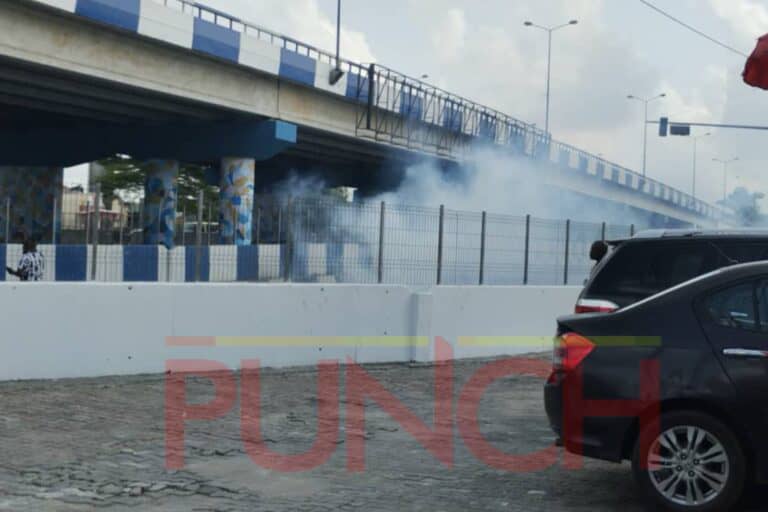Police operatives disrupted the planned protests by the Take-It-Back Movement across several states on April 7, 2025, leading to widespread condemnation from civil rights groups.
The protests, aimed at challenging government policies including the Cyber Crime Act and the ongoing state of emergency in Rivers State, were met with force as security agencies deployed tear gas and even helicopters to disperse crowds.
In Rivers State and Abuja, protesters were confronted by police, who fired tear gas and made multiple arrests. Two protesters, identified as Flagboy and Abosede, were detained. Protest leader Rex Elanu confirmed the arrests, stating, “Our protest was violently dispersed. Flagboy and Abosede have been arrested.”
Amnesty International condemned the police’s actions, calling the crackdown a violation of human rights. Isa Sanusi, the Country Director for Amnesty International Nigeria, emphasized, “People have the right to associate… the police have proven once again to be against humanity’s rights.”
The demonstration faced challenges even in Lagos, where protesters were blocked from accessing the State House of Assembly. Juwon Sanyaolu, the national coordinator of the Take-It-Back Movement, argued, “The policemen are preventing us from accessing the house of assembly. It is the people’s assembly, so why are they blocking it? They are impeding our constitutional rights to movement, peaceful assembly, and protest.”
In response, the Lagos State Government referred to a recent court ruling restricting protests to designated locations, including Gani Fawehinmi Freedom Park and Peace Park, both in Lagos. The government urged protesters to comply with the ruling, warning that violations could result in damages.
Despite the violence, the Take-It-Back Movement vowed to continue their protests, with Sanyaolu adding, “We are calling for the immediate release of the protesters arrested in Abuja, Yobe, Gombe, and Rivers States. This is just a warning. By August, we will mobilize again and shake the entire country.”
The unrest in Lagos, Rivers, and Abuja was echoed by smaller-scale protests in Osogbo, Ibadan, and Edo State. In contrast, the protest failed to gain traction in northern states, with many residents unaware of the demonstrations.
As the protests unfolded, civil society groups continued to call for respect for constitutional rights and an end to the repression of peaceful assemblies in the country.

